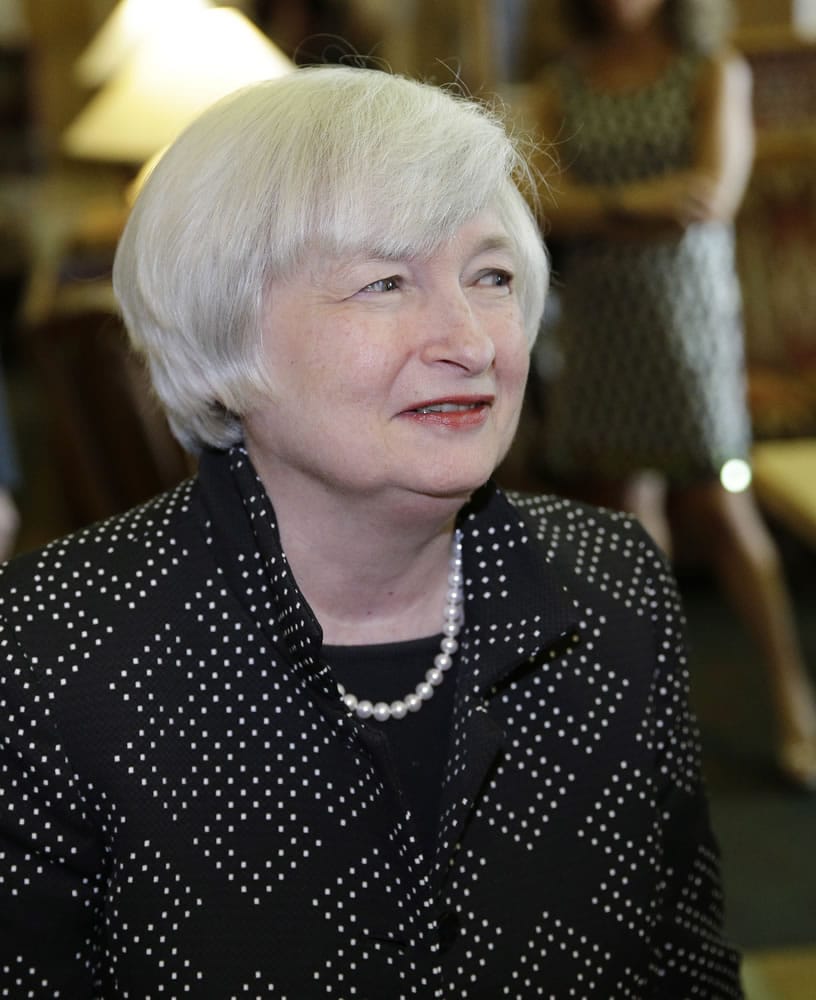WASHINGTON — Economists appear to be of two minds about the Federal Reserve.
They agree with the Fed that the job market still isn’t healthy. Yet the latest Associated Press survey of economists finds that most fear the Fed will wait too long to raise interest rates and thereby risk stoking inflation or creating asset bubbles.
The duality of their views underscores the perils of the Fed’s policymaking. Most economists accept that there’s still “significant” slack in the job market. By that they mean that millions of people — the unemployed as well as part-time workers and people who’ve stopped looking for work and aren’t counted as unemployed — would likely take jobs or work more hours if they could.
Still, they’re concerned that Janet Yellen’s Fed won’t raise rates soon enough.
“I agree with her diagnosis; I even like what she has in mind,” said Mark Zandi, chief economist at Moody’s Analytics. “But I’m skeptical that she’ll be able to pull it off.”
The AP surveyed three dozen private, corporate and academic economists from Aug. 13 to 19. In follow-up interviews, several said they feared that by waiting too long to raise rates, the Fed could ignite inflation or may already be feeding speculative bubbles in assets such as stocks or high-yield bonds.
“Yellen’s much more concerned about the Fed’s employment mandate than inflation,” said David Shulman, an economist at UCLA’s Anderson School of Management, referring to the Fed’s drive to lower unemployment. “They’ll risk financial bubbles.”
Lynn Reaser, a professor at Point Loma Nazarene University, agrees with Yellen that if the economy were nearing full health, workers’ pay would be rising, fewer people would be unemployed for more than six months and part-timers who want full-time jobs would manage to find them.
But “by the time we hit that situation, there may already be pressures on the inflation front or significant bubbles in various asset markets,” Reaser said. “To play catch-up at that point may require large increases in interest rates, which could be very damaging to the economy.”
Strikingly, while the economists worry that the Fed won’t get out of the way of the strengthening U.S. recovery soon enough, they fear the opposite about Europe: That its economy may have entered a “lost decade” similar to Japan’s long-standing stagnation.
Some, such as Allen Sinai, chief global economist at Decision Economics, think the European Central Bank has been too cautious and should launch a bond-buying program akin to what the Fed had done. The idea would be to keep rates low, boost stock prices and shrink the euro’s value, which would make European exports more affordable.
“The sooner they do that, the better the chance that Europe can get out of the lost decade before it turns into two decades,” Sinai said.
ECB President Mario Draghi hinted last week that the central bank could take such a move in coming months.



